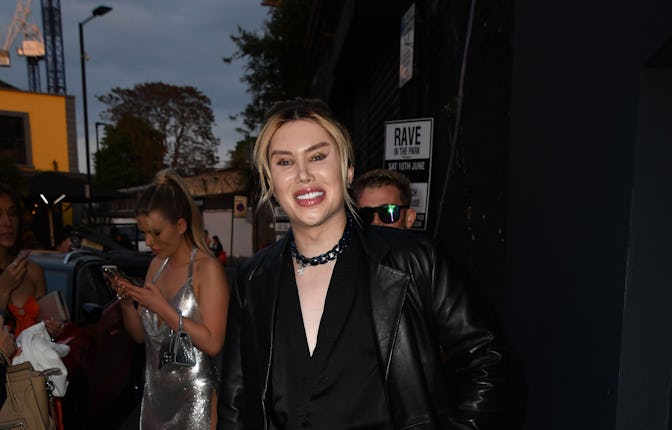‘Transracial’ influencer and BTS wannabe Oli London is wrong in too many ways to count
The white TikToker got 32 surgeries to look like group member Ji-Min, then gave a pathetic non-apology to the Asian community.

If Oli London has never come across your TikTok ‘For You’ page, it probably means you're a well-adjusted adult who pays taxes on time and contributes to society. The rest of us have long had to suffer through videos of this dumpster fire of a British influencer, who first rose to fame for getting 32 plastic surgeries in order to look like BTS member Park Ji-Min and for claiming to be a transracial Korean person (and yes, they’re white).
This week, Oli London finally posted a much-anticipated apology video to Ji-Min and the Asian community, although what, exactly, they're apologizing for is unclear. Although they admitted that their obsession with Ji-Min was “unhealthy,” they definitely did not admit that they are, indeed, white. “I do identify as Korean, that’s never going to change,” they said toward the end of the video. “But I just want to apologize to any member of the Asian community that has ever misunderstood me or misinterpreted me.”
In the video, London also spoke about how they were constantly bullied and hated the way they looked growing up, which for some reason made them want to be Asian — a confusing statement for someone like me, who was bullied for actually being Asian. London attributed their newfound internal peace to their husband, who they describe as a “Ji-Min look alike” (you guessed it, he’s white too).
Although an entire book could be written about how wrong London is about everything, I’ll just point out the most obvious. First, their obsession with “looking” Korean is rooted in offensive stereotypes created by white people about Asians. Among the surgeries London said they would get in order to look like Ji-Min was a penis reduction surgery, Business Insider reported earlier this year. London’s perception of Koreanness is also deeply skewed by colonialism, because Korean culture upholds Eurocentric beauty standards that were set by the West during periods of occupation.
South Korea is the country with the most plastic surgeries per capita, and those surgeries tend to favor features like thin noses and double eyelids. The oxymoron of the entire Oli London fiasco — bear with me here — is that they’re trying to look like a Korean person who is considered desirable in a country that wants desperately to look less Asian. It’s weird, it’s fetishy, and it’s also a major mindfuck.
But beyond the danger of the transracial movement, which first entered the cultural conversation in a big way with Rachel Dolezal, is that they often use the transgender community to validate transracial identity. London’s liminality as a non-binary person threatens to further confound the type of person who is already skeptical of transgender people. But gender is inherently fluid and a product of culture; there’s evidence of its malleability throughout history. Race, on the other hand, is a product of one’s lineage and was used as a major tool to create the unequal structures that exist in the world today. If race doesn’t get to be malleable for people of color — in other words, if we don’t get to decide one day that we want to identify as white and automatically receive the privileges that entails — then white people do not have the right to claim to be us, no matter how fascinating they may find us to be.